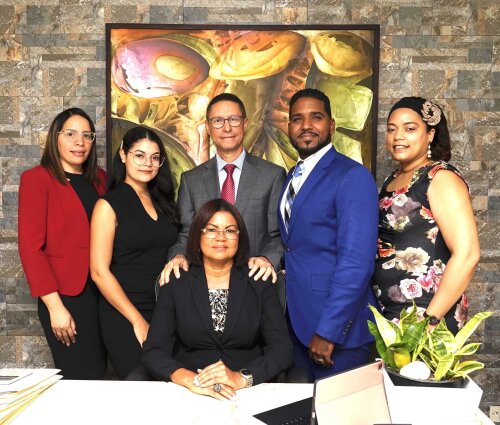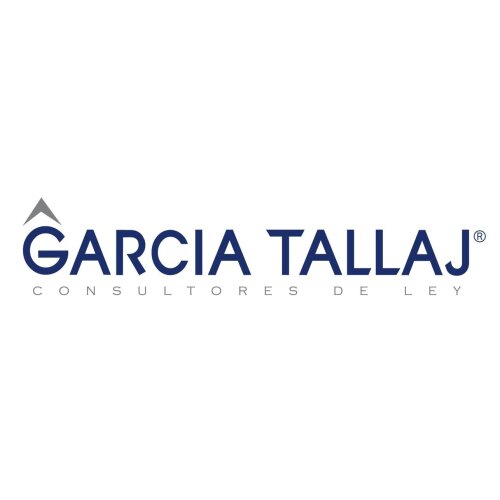Best Collaborative Law Lawyers in Sosua, Cabarete
Share your needs with us, get contacted by law firms.
Free. Takes 2 min.
Free Guide to Hiring a Family Lawyer
List of the best lawyers in Sosua, Cabarete, Dominican Republic
About Collaborative Law in Sosua, Cabarete, Dominican Republic
Collaborative Law is an alternative dispute resolution process that is gaining recognition in Sosua and Cabarete, two popular towns on the northern coast of the Dominican Republic. Unlike traditional courtroom battles, Collaborative Law focuses on resolving disputes—especially family and business conflicts—through voluntary cooperation, open communication, and mutual respect. This approach is particularly beneficial in multicultural communities like Sosua and Cabarete, where parties often seek amicable solutions to avoid lengthy and costly litigation.
The process typically involves both parties and their respective lawyers working together to reach a mutually satisfactory agreement. Other professionals, such as financial advisors or child specialists, may also be involved, depending on the nature of the dispute. Collaborative Law agreements are legally binding once finalized and can address family matters, business issues, and even certain civil disputes.
Why You May Need a Lawyer
Engaging a lawyer familiar with Collaborative Law in Sosua and Cabarete is crucial for several reasons. Here are some common situations where legal help may be essential:
- Marital Separation or Divorce: Couples wishing to part ways amicably often use Collaborative Law to negotiate property division, child custody, alimony, and support without resorting to court battles.
- Child Custody and Support: Parents aiming to prioritize their children's wellbeing frequently choose Collaborative Law to craft fair parenting plans and maintenance arrangements together.
- Business Partnership Disputes: Business owners and partners may prefer collaborative negotiations to preserve working relationships and agree on terms like dissolution, buyouts, or restructuring.
- Inheritance and Estate Matters: Families often use Collaborative Law to handle complex inheritance or estate distribution issues in a less adversarial environment.
- International and Multinational Issues: With many expatriates residing in Sosua and Cabarete, Collaborative Law offers a culturally sensitive approach to resolving cross-border disputes.
A knowledgeable lawyer helps protect your interests, ensures compliance with Dominican law, and guides you through the collaborative process with clarity and confidence.
Local Laws Overview
Collaborative Law in the Dominican Republic, including Sosua and Cabarete, operates within the framework of the country’s legal system, which is based on the Civil Law tradition. While formal recognition of Collaborative Law is still developing, its principles are increasingly applied in family and civil matters.
Key aspects of local law relevant to Collaborative Law include:
- Family Law: The Dominican Civil Code governs marriage, divorce, child custody, and inheritance. Collaborative agreements are subject to court approval if they involve children or impact legal rights.
- Contract Law: Agreements reached through the collaborative process are binding if they meet the requirements of legality, mutual consent, and clear terms as required by the Civil Code.
- Notarial and Judicial Oversight: Some agreements, such as property transfers or custody arrangements, may need to be notarized or approved by a local court to be enforceable.
- Language and Documentation: Legal documents in Sosua and Cabarete must generally be prepared in Spanish or include certified translations for official use.
It is essential to work with a local lawyer who can navigate these requirements and ensure that your collaborative agreement is enforceable under Dominican law.
Frequently Asked Questions
What is Collaborative Law?
Collaborative Law is a voluntary dispute resolution process where both parties, along with their lawyers, work together to reach a fair agreement without going to court.
What types of disputes are best suited for Collaborative Law in Sosua and Cabarete?
Collaborative Law is especially effective for family law matters such as divorce, child custody, and support, as well as business and inheritance issues.
Is Collaborative Law legally recognized in the Dominican Republic?
While there is no specific legislation for Collaborative Law, its principles are broadly respected in family and civil disputes. Agreements are valid if they comply with Dominican law.
How does Collaborative Law differ from mediation or arbitration?
In Collaborative Law, both parties retain separate lawyers and actively participate in negotiations. Mediation uses a neutral third party to facilitate talks, while arbitration involves a binding decision from an arbitrator.
Are collaborative agreements enforceable in local courts?
Yes, as long as the agreement is legally sound and, where required, approved by a court or notary, it is enforceable like any other contract.
Can I use Collaborative Law if one party lives outside the Dominican Republic?
Yes, especially in international communities like Sosua and Cabarete. However, legal procedures may need to adhere to Dominican law and include appropriate translations or consular involvement.
What is the role of the lawyer in Collaborative Law?
Each party’s lawyer represents their client’s interests, guides negotiations, ensures fairness, and makes sure any agreement complies with local laws.
How long does the Collaborative Law process take?
The timeline varies but is generally faster than traditional litigation, often concluding in a few weeks or months depending on the complexity and cooperation between parties.
Can children’s issues, such as custody and visitation, be handled using Collaborative Law?
Absolutely. Collaborative Law is particularly well suited to sensitive family matters, helping parents focus on their children’s best interests.
Do I have to appear in court if we reach an agreement?
In many cases, if the agreement complies with legal requirements, minimal or no court appearance is required. However, for some matters like child custody, judicial approval may be necessary.
Additional Resources
If you need more information or assistance with Collaborative Law in Sosua and Cabarete, consider the following resources:
- Dominican Bar Association (Colegio de Abogados de la República Dominicana): This organization oversees legal professionals and can help you find qualified lawyers specializing in mediation and Collaborative Law.
- Local Family Courts (Tribunal de Familia): These courts can provide guidance on submitting and formalizing family-related agreements.
- Public Notaries (Notarios Públicos): For notarized documentation of collaborative agreements.
- Ministry of Justice (Procuraduría General de la República): Provides information on legal procedures and dispute resolution services.
- Expatriate Associations: Many local expat clubs or organizations offer support and referrals for legal matters in Sosua and Cabarete.
Next Steps
If you are considering Collaborative Law for your dispute in Sosua or Cabarete, follow these steps:
- Reflect on your goals and desired outcomes for your case, keeping in mind the benefits of an amicable solution.
- Consult with a local lawyer experienced in Collaborative Law to understand your options and the legal implications of your case.
- Discuss the collaborative approach with the other party to determine if you both are willing to participate in good faith.
- Gather all relevant documents and information to facilitate a smooth negotiation process.
- Engage your lawyer to draft or review the agreement, ensuring it meets all legal requirements in the Dominican Republic.
- Finalize and, if necessary, notarize or submit the agreement to the appropriate authority for approval and enforcement.
Collaborative Law can help you maintain control, save costs, and reach a resolution that respects everyone’s interests. Working with a qualified local lawyer will ensure your rights are protected and your agreement stands up under Dominican law.
Lawzana helps you find the best lawyers and law firms in Sosua, Cabarete through a curated and pre-screened list of qualified legal professionals. Our platform offers rankings and detailed profiles of attorneys and law firms, allowing you to compare based on practice areas, including Collaborative Law, experience, and client feedback.
Each profile includes a description of the firm's areas of practice, client reviews, team members and partners, year of establishment, spoken languages, office locations, contact information, social media presence, and any published articles or resources. Most firms on our platform speak English and are experienced in both local and international legal matters.
Get a quote from top-rated law firms in Sosua, Cabarete, Dominican Republic — quickly, securely, and without unnecessary hassle.
Disclaimer:
The information provided on this page is for general informational purposes only and does not constitute legal advice. While we strive to ensure the accuracy and relevance of the content, legal information may change over time, and interpretations of the law can vary. You should always consult with a qualified legal professional for advice specific to your situation.
We disclaim all liability for actions taken or not taken based on the content of this page. If you believe any information is incorrect or outdated, please contact us, and we will review and update it where appropriate.










